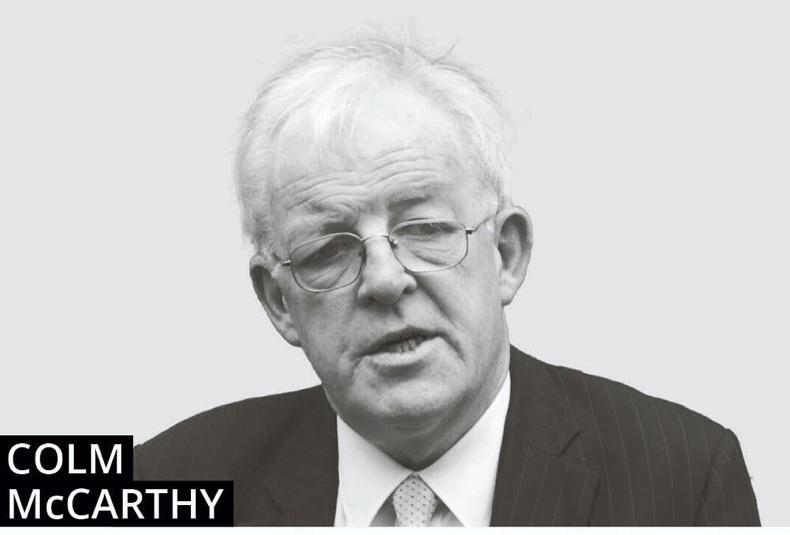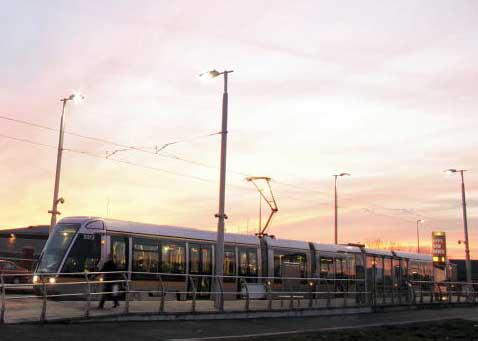Governments and climate campaigners don’t just recommend abstinence from meat and dairy products, they also stigmatise air transport – responsible for no more than about 3% of worldwide carbon emissions.
You would be excused for imagining a far higher figure, given the prominence aviation attracts in the popular media.
Last week, two Dáil deputies proposed a bill that would ban flights in Ireland on privately-owned aircrafts, responsible for a trivial portion of total emissions. Not liking rich people who own aeroplanes is not a serious policy to save the planet.
Ireland sells most of its food output abroad, but the carbon emissions get counted in Ireland. The same is true of airlines.
It emerged recently that Ireland’s aviation emissions include flights by Irish carriers that never visit Irish airspace at all.
Flight-shaming
But these sectors are just unlucky. As with most European countries, Ireland’s emissions (if counted by consumption, as they should be) are far higher than the amount attributable on a production basis.
Blame imports of heavy industrial products from China and other sources in Asia instead.
The term ‘flight-shaming’ made it into the Oxford English Dictionary in 2019 and every objection to an airport expansion cites climate change as the motivator.
Amsterdam’s Schiphol airport faces objectors fighting a planned increase in runway usage in the courts. The Dublin Airport Authority is also fighting a county council cap on passenger volumes.
Aside from creating work for lawyers, is this a smart way to limit aviation emissions?
It looks as if aviation will be waiting a long time for low-cost technological solutions, unlike surface passenger transport.
Cars and buses do not have to be elevated quickly to 10,000 metres to reach cruise conditions; they cruise just fine at sea-level.
It takes lots of energy to lift aircraft; a Boeing 777 fully laden for a trip across the Atlantic weighs 350 tonnes. Batteries would be too heavy even with zero payload, so electrification of large aircraft is not going to happen soon, if ever.
Ireland’s aviation emissions include flights by Irish carriers that never visit Irish airspace at all
Small air taxis may be feasible: experimental models are in development and they could become a commercial proposition for very short trips. For longer journeys in large aircraft, no painless fix appears to be available.
Emissions per flight are declining with improvements to jet engine efficiency and carbon impact may not rise fully in step with traffic.
Given the small share in total emissions, maybe the best solution is to seek lower-cost reductions elsewhere.
The international aviation industry has been in denial, however, about one practical short-term policy requiring no technological breakthroughs at all.
The aviation industry has escaped, largely by accident, the attention of the tax-gatherers. Airline tickets are VAT-free and aviation fuel pays no excise, unlike agricultural diesel. Imposing both taxes would cut aviation emissions by roughly one-quarter, and fuel for ships also pays no excise.
Gross carbon emissions
The accepted target for emissions from all countries and all sectors is net zero, not gross zero, so there will always be emissions.
Gross emissions needs to be reduced sharply wherever it is least costly to do so, and carbon can also be withdrawn from the atmosphere through land-use changes and carbon capture, eliminating or storing carbon.
The term ‘flight-shaming’ made it into the Oxford English Dictionary in 2019
Gross emissions reduction and carbon withdrawal cannot happen quickly, but needs to be delivered steadily over the coming decades, according to consensus reports from the Intergovernmental Panel on Climate Change.
But the main emphasis has been on investment incentives for renewables, regulatory changes and, at least in most European countries, resort to carbon taxes on the demand side.
There has also been an extraordinary outbreak of virtue-signalling and appeals to the public to alter lifestyles through dietary choices and travel behaviour.
Aviation, like farming, has attracted a share of this attention due to its importance as a source of emissions, without regard to what is feasible at an affordable cost.
In sectors where technology is unlikely to facilitate low-cost carbon reduction, early target dates to attain net zero could be economically inefficient, as the same result may be attainable at less cost – and sooner in other ways.
If gross emissions could be halved, bringing the figure back to where it was in the 1980s, climate scientists expect the worst outcomes would be averted. Clearly, at just 3% of the global total, getting rid of aviation altogether would make only a marginal contribution.
Clearly, at just 3% of the global total, getting rid of aviation altogether would make only a marginal contribution
It is extraordinary, the volume of public attention that gets focused on the aviation sector, given the paucity of low-cost technological options and the ready availability of simple and fair taxation measures that would cost nothing to implement and have a sizeable impact.
Far more fun to rail against the tiny volume of emissions attributable to the lucky people who can afford their own aeroplanes.










SHARING OPTIONS